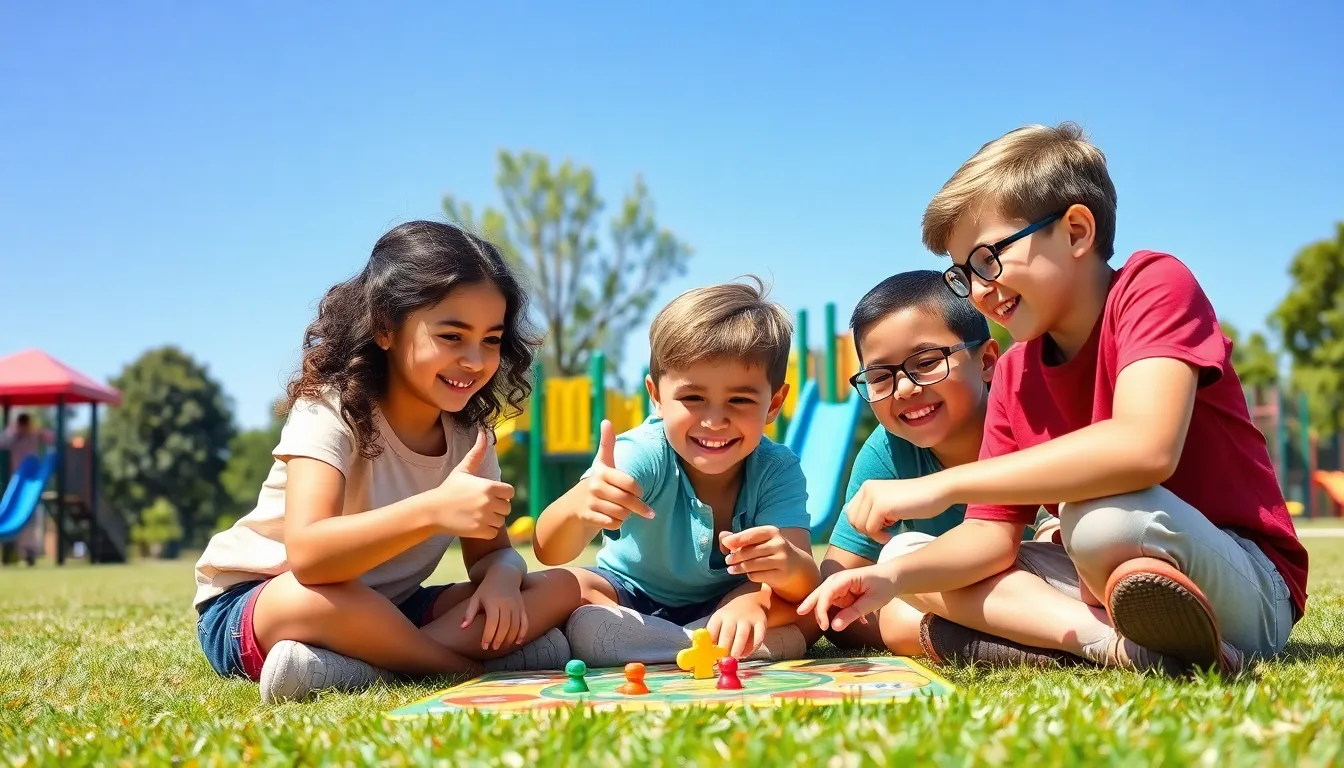Kids love to explore the world around them, and what better way to spark their curiosity than with fun science experiments? With a dash of creativity and a sprinkle of enthusiasm, these hands-on activities can transform any kitchen into a mini laboratory. Who knew that making a volcano could be as simple as mixing baking soda and vinegar?
Table of Contents
ToggleImportance Of Kids Science Experiments
Engaging in science experiments fosters critical thinking skills. Kids learn to ask questions, form hypotheses, and analyze results. Experiments provide hands-on experience, making abstract scientific concepts tangible.
This approach nurtures curiosity, encouraging exploration of the natural world. Observing reactions, such as mixing baking soda with vinegar, illustrates scientific principles effectively. Kids gain confidence as they create and manipulate materials, enhancing their problem-solving abilities.
Science experiments also promote teamwork and communication. Working in groups allows children to share ideas and collaborate on projects. They develop social skills while discussing results and refining their approaches with peers.
Incorporating fun elements into learning enhances retention. Experiments capture kids’ attention, making science enjoyable. Exciting activities, like building a simple circuit or growing crystals, motivate ongoing interest in science.
Experiments can bridge educational gaps too. Kids with different learning styles benefit from varied approaches. Visual and tactile learners especially thrive through hands-on activities, reinforcing understanding and retention.
Parents and educators can use these experiments as bonding opportunities. Shared experiences create lasting memories and support children’s overall development. They also provide parents reassurance that their kids are cultivating essential life skills.
Involving kids in science experiments prepares them for future challenges. An early foundation sparks interest in STEM fields. As kids explore scientific methods today, they develop the skills to become tomorrow’s innovators.
Types Of Kids Science Experiments

Engaging kids in various science experiments enhances their learning experience. Two primary categories exist: indoor and outdoor experiments.
Indoor Experiments
Indoor experiments provide an excellent opportunity for children to explore scientific principles within controlled environments. Examples include creating a lava lamp using oil and water or growing crystals with sugar and water. Safety remains paramount, so experiments with household items like baking soda or vinegar suit this setting well. Kids learn about chemical reactions firsthand while enjoying the process. Accessible materials make these experiments easy to conduct. Additionally, indoor experiments can be completed in a short time, accommodating busy schedules while promoting curiosity.
Outdoor Experiments
Outdoor experiments offer numerous possibilities for hands-on science learning. Kids can explore ecological concepts through activities like planting seeds and observing growth or studying insects in their natural habitats. Gathering materials from nature enhances creativity and fosters environmental awareness. Weather conditions allow for experiments like creating a simple solar oven or measuring wind speed. Such activities encourage exploration beyond traditional classroom settings. Outdoor experiments often involve collaboration, helping children develop teamwork skills while connecting with the natural world.
Simple Science Experiments For Kids
Simple science experiments engage children and spark their curiosity. These activities utilize common household items and facilitate learning in an enjoyable way.
Materials Needed
Gather the following materials for these simple experiments: baking soda, vinegar, food coloring, a clear plastic bottle, vegetable oil, water, and a container for overflow. Use safety goggles for eye protection. These supplies ensure that kids safely explore scientific principles while having fun.
Step-by-Step Instructions
- Fill a clear plastic bottle halfway with water.
- Add a few drops of food coloring to enhance visual appeal.
- Pour in vegetable oil until the bottle is nearly full; observe the oil float on water.
- In a separate container, mix baking soda with vinegar to create an erupting reaction.
- Slowly add this mixture to the colored water and oil. Witness the mesmerizing eruption and bubbles.
These steps illustrate fundamental scientific concepts while providing an entertaining learning experience.
Engaging Kids In Science
Hands-on science experiments engage children and enhance their understanding of scientific concepts through practical experience. These activities foster exploration and stimulate enthusiasm about learning.
Benefits Of Hands-On Learning
Hands-on learning promotes retention by allowing kids to apply concepts practically. Engaged learners show improved problem-solving abilities from tackling real-world challenges during experiments. Additionally, confidence increases as children see their ideas materialize. Curiosity often sparks when they witness changes firsthand, making concepts more relatable. Teamwork develops as they collaborate on experiments, sharing responsibilities and ideas. Communication skills also improve through discussion and inquiry. Overall, engaging in hands-on activities builds a strong foundation for critical thinking while making learning enjoyable.
Encouraging Curiosity
Fostering curiosity remains essential for children’s development. Engaging kids in experiments encourages them to ask questions and discover answers independently. Real-life applications of science, such as observing reactions or changes, captivate their imaginations. When kids participate actively, they’ll develop a lifelong love for learning. Allowing them to explore different outcomes stimulates further inquiry, establishing a natural desire to understand their surroundings. Curiosity thrives in supportive environments where kids feel comfortable sharing thoughts and concepts. Presenting relatable topics captures attention and ensures that they remain interested in science beyond the immediate experience.
Engaging kids in science experiments cultivates their natural curiosity and lays the foundation for critical thinking. These hands-on activities not only make learning enjoyable but also foster essential skills like teamwork and communication. By turning everyday moments into learning experiences, parents and educators can create lasting memories while nurturing a love for science.
Whether indoors or outdoors, these experiments provide valuable opportunities for exploration and discovery. As children witness scientific principles in action, they gain confidence and develop a deeper understanding of the world around them. Ultimately, these experiences prepare them for future challenges, inspiring the next generation of innovators and problem solvers.




